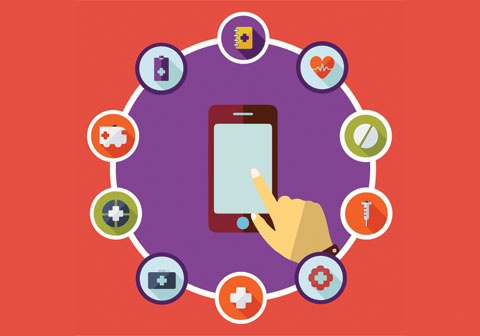
Healthcare Marketing – An Emphasis on Digital

There is a growing number of consumers who are looking online for healthcare information – and they seek it through search, mobile and social platforms.
[imageframe lightbox=”no” style_type=”” bordercolor=”” bordersize=”0px” stylecolor=”” align=”right” animation_type=”fade” animation_direction=”down” animation_speed=”0.1″ class=”” id=””][/imageframe]
Healthcare marketers are faced with finding cost effective ways to develop patient relations, and digital methods are becoming more and more the answer. At first glance it may seem out of place to execute digital strategies to a presumably younger audience, but as research is indicating, more and more patients are online and on mobile devices for vital health information. Reaching consumers directly should be a key component of every healthcare facility’s strategy. That’s not to say the publishing media should be avoided, but there is a growing number of consumers who are looking online for healthcare information – and they seek it through search, mobile and social platforms. The good news for hospitals is that these healthcare marketing tactics turn out to be much more cost effective than traditional media, and can deliver revenue-generating patients.
In an article recently published in Ad Age (Health-Care Industry – Digital, Sept. 2014) the author, Ashley Rodriguez, quotes John Weston, CMO at Mayo Clinic, “The consumer-to-patient journey is largely a digital journey at their moment of need.” One of the first things people do after a diagnosis is to seek information online, and providing a positive and useful experience for them will help lead to further engagement. It is an opportunity to enhance the hospital’s brand and develop a relationship, short and long term, with the patient. It also serves to both attract and retain patients in the continuum of care that they’ll need as they age.
Social Media
Patient testimonials and physician content is key in marketing healthcare today. Consumers are searching for patients with similar experiences and social media is the optimal platform to deliver those stories. “Patients really want an outlet for telling their stories and social is such a beautiful way for people to do that,” said Margaret Coughlin, CMO at Boston Children’s Hospital. Authenticity is alive in social media and can help build trust. Some content can be planned and marketed appropriately, but hospitals often have unplanned events which can also take advantage of social media platforms for quick, timely and accurate dissemination. North Shore-LIJ in New York recently provided information (www. nslijalerts.com) to the public about the Ebola virus via video interviews with their expert physicians.
Mobile
Consumers are looking for rapid and easy access to information about their healthcare. Mobile devices such as smartphones and tablets are providing it. It’s essential that marketers think about providing information in formats that are compatible with mobile platforms. Responsive and easy-to-navigate or use websites must be built for mobile, and apps should be considered for engaging the customer and building the brand. At North Shore–LIJ, they’ve created an app called “On Health” which allows the user to customize the type of information they would like delivered digitally. A heart patient, for example, may want cardiology and diet information. Mayo Clinic’s app for pregnant mothers is designed as a companion to mothers through their babies’ first few months. It also allows them to book appointments and access to healthcare information.
ROI
Digital activity is measurable. It helps to justify budgets for the staff required to build and execute digital content. Good content helps with search and increases success with organic results. While it is difficult to directly tie patient revenue to investment, overall revenue growth is one indicator. Engagement is another – which can be evaluated against previous months or years – and engagement leads to patients. Finally, given today’s economics in healthcare, what is the cost of not building a digital program? Competition for patients’ loyalty and business is fierce – and being there for them when they search and seek information is essential.
